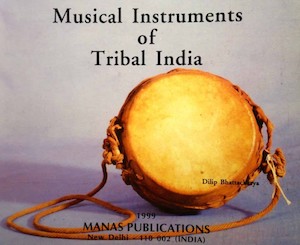“The great diversity of music in India is a direct manifestation of the diversity and fragmentation of the population in terms of race, religion, language, and other aspects of culture. […] The songs vary in detail, not only from one region to another, but also within a region among the different strata of society.” – NA Jairazbhoy in “Tribal, Folk and Devotional Music” >>
“Religion is a personal matter and should not be politicised.” – Invitation by the Bharat Jodo Abhiyan (BJA) – a civil society platform involving organisations from across 15 states – extended to all like-minded citizens “who take pride in our progressive, inclusive civilization and are committed to our constitutional values of fraternity, liberty, equality and justice” | TheWire (2 January 2024) >>
What is that brings a music band advocating folk music to a seminar on open software? Vayali Folklore Group, the music band, comes into the picture as Vinod Nambiar, its executive director, is leading a session on ‘Documenting culture on FOSS’ at the ongoing 4th International FOSS Conference, Kerala, on December 29.“We are documenting information about people on the banks of the Bharathapuzha, including their art and culture. We are covering the entire course of the river, from Anamalai to Ponnani. This digital community archive is done through open software tools. Although the project has come to a halt due to paucity of funds, we’re expecting support from certain quarters.
“Loads of archival material related to folklore are gathering dust in various organisations and institutions. Academicians and not laymen have access to those. Through a digital community archive, we are giving back to the society what we have taken from them.”
Vayali was born at Arangottukara, a small village in Thrissur district, seven years ago to preserve the folklore along the banks of the Nila. […]
Now it runs an eco-bazaar for traditional artisans, is on the responsible tourism itinerary, has a much-sought after bamboo orchestra, is raising funds for ailing artisans/artists, and envisages an educational module to teach lessons of nature conversation through folklore.
There is much more, says Vinod Nambiar, a software engineer who has been instrumental in the formation of Vayali (which stands for Vayalamma or the Goddess of Fields in local lingo). For instance, there is a project to document information regarding bamboo music in India with the support of the National Bamboo Mission. “We were inspired to form a bamboo orchestra after seeing one in Japan at the Traditional Music and Rhythm Festival,” says Vinod. In the orchestra, which uses only instruments made of bamboo, the flute is the lead instrument. Among other instruments are Mulam Chenda, Mulam Thudi, and Mazha Mooli. The team has come up with innovative instruments as well – an example being a five-drum set.
Vayali has not only got hold of many original folk songs, but has also revived some near-extinct art forms. It has 36 members (had 10 when it started), who, in addition to their jobs, keep alive an art form and make an income from it. Vayali has a junior group as well. “It comprises children from in and around our village, who’ve shown interest in the work we do,” Vinod says. And the juniors step in when the seniors have other programmes.
Branching out
Vayali is into responsible tourism potential as well. A few years ago it got associated with Blue Yonder, an organisation promoting responsible tourism initiatives in Kerala. “Now tourists come to the village, spend a day here watching the artisans at work at our Eco Bazaar, and in the evening we perform for them,” Vinod says.
The group also plans to work with Mental Health Action (MEHAC), a voluntary foundation, to help ailing artisans. “Last year, three traditional artisans died. […]
Vayali is also taking forward its nature education module development, with the support of Centre for Environment and Development. It involves educational institutions and the primary aim is to share traditional knowledge systems and to make the coming generation understand the need for preserving them.
Source: “Vayali’s earth songs” by Athira M. (The Hindu, 29 December 2011)
Address : https://www.thehindu.com/todays-paper/tp-features/tp-metroplus/article2756018.ece
Date Visited: 19 July 2021
“The smart boy or clever girl who is deprived of the opportunity of schooling, or who goes to a school with dismal facilities (not to mention the high incidence of absentee teachers), not only loses the opportunities he or she could have had, but also adds to the massive waste of talent that is a characteristic of the life of our country.” – Nobel Awardee Amartya Sen in The Argumentative Indian (Penguin Books, 2005), p. 344 | Find this and other books published in India >>
Related: Tribal Children’s Right to Education | Childhood | Ekalavya (Eklavya, Eklabya), EMR & Factory schools | Childrens rights: UNICEF India >>

Musical Instruments of Tribal India
by Dilip Bhattacharya >>
See also
Audio | Santali Traditional and Fusion Songs: Ghosaldanga Bishnubati Adibasi Trust – West Bengal
Crafts and visual arts | Masks
India’s tribal, folk and devotional music: Secular and ceremonial songs
Memory of the World Programme – Unesco
Music and dance | Musicology | Adivasi music and the public stage by Jayasri Banerjee
Video | Banam lutes and fiddles of the Santal people – Jharkhand & West Bengal
Video | Celestial Dancers of Manipur
Video | Cultural traditions of the Halakki people – Karnataka
Video | Khasi musical heritage of Meghalaya
Video | Kota women’s dance: Shivaratri celebrations – Nilgiris – Tamil Nadu
Video | Santali video album “Ale Ato” (Our Village, Part 1 of 2) – West Bengal
Video | South Gujarat tribal music documentation by Bhasha – Gujarat
Video | Tribes in Transition-III: “Indigenous Cultures in the Digital Era”
Video | Safe contents for educational use on many topics (music, visual arts and more)
Research the above issues with the help of Shodhganga: A reservoir of theses from universities all over India, made available under Open Access >>